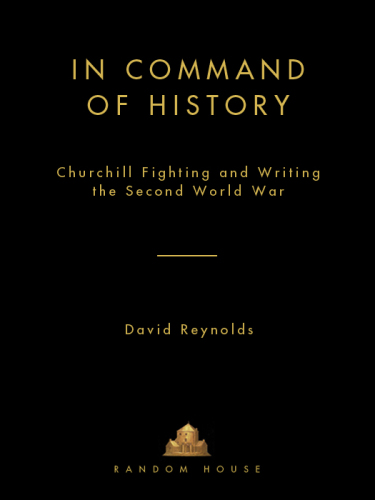
In Command of History
Churchill Fighting and Writing the Second World War
- اطلاعات
- نقد و بررسی
- دیدگاه کاربران
نقد و بررسی

August 29, 2005
For many, the fact that Churchill won his Nobel for literature comes as a surprise, but he was a prolific—and very well paid—historian and journalist. Awarded Britain's Wolfson History Prize, this highly readable book by Cambridge historian Reynolds supplies the backstory to Churchill's massive postwar publishing project: the epic The Second World War.
As the author notes, he's writing "a book about personal biography and public memory," beginning with Churchill's crushing defeat in the July 1945 election and offering a unique perspective on WWII, the onset of the Cold War and Churchill's determination to write the history of the 20th century's signal conflict. But Reynolds's real achievement is his grasp of the motives behind that determination: "Churchill's sense of the fickleness of fame... impelled him to be his own historian." He quotes a 1944 letter to Stalin in which Churchill writes, "I agree that we had better leave the past to history, but remember if I live long enough I may be one of the historians." Packed with detail and vivid characterizations (but still clearly a scholarly, thoroughly researched work), it's a different take on one of the few men capable of both making history and writing it. 16 pages of b&w photos. Agent, Irene Skolnick Agency.

November 1, 2005
Subjecting Winston Churchill's monumental six-volume work " The Second World War" (1948-53) to historical scrutiny, Reynolds delivers a mixture of conclusions that, on the whole, reinforce the work's unique stature. In small and large ways, it has shaped popular and professional historians' perceptions of the global war of 1939--45, from naming it "the Second World War" to theses of its origin in appeasement and its outcome in the cold war. Reynolds seems all the more impressed because the work has survived abundant criticism. Churchill was not comprehensive; he was forced to omit the Ultra secret and was inclined to overlook the war in Russia and the Far East. Sometimes he got his facts wrong; sometimes he altered his text for his own purposes, such as his desire to return to power; and in Reynolds' view, he overindulged in counterfactual speculation. But Churchill was " there" at the center of events, portraying them with unsurpassed eloquence. Important scholarship, Reynolds' inquiry will intrigue the multitude that has read " The Gathering Storm " and its sequels. (Reprinted with permission of Booklist, copyright 2005, American Library Association.)




دیدگاه کاربران